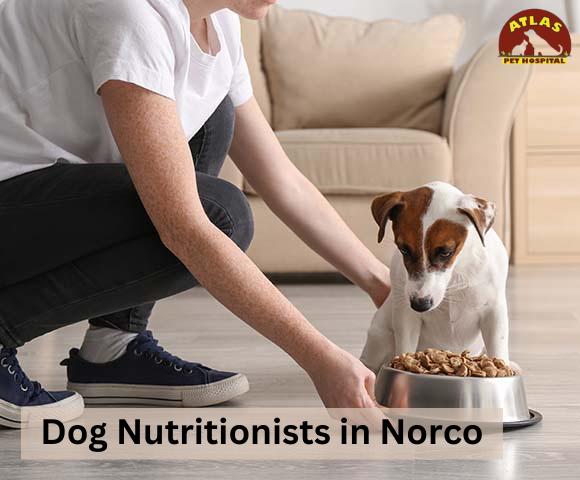As devoted pet owners, ensuring our furry friends lead healthy and happy lives is a top priority. Just like humans, dogs require a balanced diet rich in essential nutrients to thrive. However, deciphering whether your dog’s diet is meeting all their nutritional needs can sometimes be a challenge. In this article, we’ll explore the subtle and not-so-subtle signs that your dog’s diet may be lacking key nutrients. With a warm and instructive approach, we’ll guide you through recognizing these signs, helping you take proactive steps to ensure your canine companion receives the nourishment they deserve for a vibrant and energetic life.
Identifying Behavioral Changes Linked to Nutritional Deficiencies
Just like humans, dogs exhibit noticeable behavioral changes when their diets are not meeting their nutritional needs. Recognizing these shifts early can prevent long-term health issues. Here are some behavioral cues that may indicate your furry friend is lacking essential nutrients:
- Increased Lethargy: If your dog is sleeping more than usual or shows a lack of enthusiasm for activities they typically enjoy, it might be due to a deficiency in iron or vitamin B12, which are vital for energy production.
- Heightened Anxiety or Restlessness: A diet low in magnesium or omega-3 fatty acids can lead to nervousness or an inability to relax. These nutrients are important for maintaining a calm and balanced nervous system.
- Changes in Appetite: A sudden loss of appetite or increased hunger can indicate an imbalance in zinc or vitamin D levels. Both are crucial for maintaining a healthy metabolism and digestive function.
It’s essential to monitor your dog’s behavior closely and consult with a veterinarian if you notice any of these signs. Adjusting their diet to include a variety of nutrients can lead to a happier, healthier pet.

Spotting Physical Symptoms That Indicate a Poor Diet
When assessing your furry friend’s diet, it’s essential to watch for physical cues that may hint at nutritional deficiencies. A dog’s body often reveals a lot about its dietary health through its coat, skin, and energy levels. Here are some telltale signs to keep an eye on:
- Dull Coat and Excessive Shedding: A healthy diet rich in fatty acids like omega-3 and omega-6 is crucial for maintaining a shiny, smooth coat. If your dog’s fur is looking lackluster or they’re shedding more than usual, it might be time to evaluate their intake of these essential nutrients.
- Dry, Flaky Skin: Just like humans, dogs need the right balance of vitamins and minerals to keep their skin in top condition. Flaky or itchy skin can be a sign that your pet isn’t getting enough of these key nutrients, particularly vitamin E and zinc.
- Low Energy Levels: Dogs are naturally active creatures, and a lack of energy might suggest an imbalance in their diet. Ensure they’re receiving enough protein and carbohydrates to fuel their daily adventures and maintain a healthy, vibrant lifestyle.
- Weight Fluctuations: Sudden changes in your dog’s weight, whether gain or loss, can indicate an issue with their diet. Monitor their portion sizes and ensure their meals are well-balanced to prevent potential health problems down the road.
Recognizing these physical symptoms early can help you make necessary adjustments to your dog’s diet, ensuring they live a happy, healthy life.
Choosing Nutrient-Rich Foods for Your Furry Friend
Ensuring your dog receives a balanced diet is crucial for their overall health and well-being. Choosing foods rich in essential nutrients can help prevent a range of health issues. Look for the following signs that may indicate your dog’s diet is missing key nutrients:
- Coat and Skin Issues: A lack of omega-3 fatty acids and zinc can lead to dry, flaky skin and a dull coat.
- Lethargy or Weakness: Insufficient protein or iron can result in decreased energy levels and muscle weakness.
- Poor Growth or Weight Loss: Inadequate intake of calories and essential vitamins can hinder proper growth in puppies or cause weight loss in adult dogs.
- Digestive Problems: A deficiency in fiber or probiotics can lead to irregular bowel movements or digestive distress.
When selecting food for your furry friend, aim for a balance of high-quality proteins, healthy fats, and complex carbohydrates. Consider consulting with a veterinarian to tailor a diet plan that meets your dog’s specific needs, ensuring a happy and healthy life.
Creating a Balanced Meal Plan Tailored to Your Dogs Needs
Observing your dog’s daily behavior and physical appearance can provide valuable clues about their nutritional health. Look out for dull coat or excessive shedding, as these can be signs of insufficient essential fatty acids or proteins in their diet. A well-nourished dog typically has a shiny, soft coat. Additionally, if your furry friend is experiencing frequent digestive issues such as diarrhea or constipation, it might be time to evaluate their dietary fiber intake or check for potential food allergies.
Another red flag is lethargy or decreased energy levels, which could indicate a lack of adequate carbohydrates or protein, essential for sustaining energy. Keep an eye on their weight fluctuations; unexplained weight gain or loss can suggest an imbalance in caloric intake or a deficiency in vital nutrients. Also, be mindful of your dog’s behavioral changes like increased aggression or anxiety, as these might be linked to imbalances in their diet. By addressing these signs with a well-rounded meal plan, you can ensure your dog remains healthy and happy.

